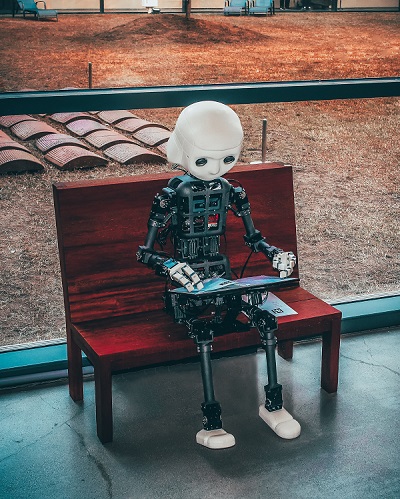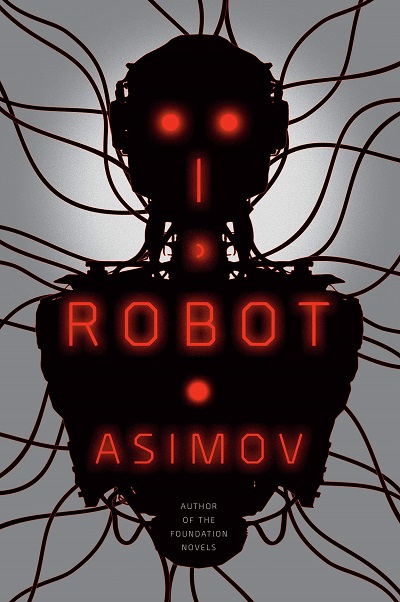When ChatGPT dropped on the world in November 2022, no one knew it would become such a boon (and a threat) to society. The usage is simple – it is an AI chatbot. This bot is trained to give a detailed response to the prompts you give. Technically, it is such a simple tool; but it has been making giant leaps in every field, especially the literary world.
Authors have been using this tool in almost every step of their book-writing process. No unique ideas? Ask the bot. Don’t know how to develop the character? The chatbot will help! Is editing your story becoming a problem for you? Not to worry, let the AI tool handle it. You can even use it to generate blog topics for you.
But, just like two sides of the same coin, relying on technology for everything attracts heavy criticism. You can find out closely about this through Ammaar Reshi’s experience. Using AI, he developed a full-fledged children’s book with illustrations in just 72 hours! The backlash, as you can imagine, came just as fast. Thefts accusations, non-originality, and stiff language were some of the points people made in response.
Indeed, there are many such literary incidents with equally strong reactions. This leaves us to wonder if AI technology has already dug its claws into something as important as writing – reading books. If yes, how are readers navigating through it? Are they hating the aid of AI technology or accepting it as the new normal?
What is AI doing to Literary studies?
Literary studies are where you study written texts, including poetry, drama and novels. As you can imagine, people studying literature have to spend most of their time reading and memorizing. They are, in a sense, deep readers with research and comprehension skills. Nowadays, individuals with interest in literary studies are using AI-powered tools to make their work easier:
- Text-to-speech is a commonly used technology. But now, there is various AI-powered software offering the same. Students use this tool to have a human-like voice reading the text out loud. While it is great for multitasking, such a tool can decrease the concentration power when doing the actual reading.
- A technology called Optical Character Recognition (OCR) can read the text in the pictures. Not only that, but it also converts the written part into proper text that you can copy, paste and edit. How is that applicable to reading? For example, if your study notes are in picture format or you want to get a direct quote from a book, you can use OCR. It will help you make your notes into texts and even let you use and edit the section.
- One of the biggest boons of AI on students and readers is the feature of Natural Language Processing (NLP). It uses pre-set algorithms to analyze the given information. Students can use tools based on this technology to understand the meaning of the text.
What is AI doing to Reading Books?
Reading has progressed from just perusing through manuscripts to so much more. Technology is seen in every step of the reading process. It all started with electronic books back in the late 1990s. When people realized that reading and technology can go hand in hand, the development was quick. E-readers, audiobooks, as well as little tools that help in reading – digital sticky notes, annotation, online dictionary, and so on.
AI has taken over many aspects of our very human reading process. Important examples are:
- AI technology can actually recommend books. It does so through something called a recommendations system. This digital system recommends books based on your reading history. How can it find your reading history? By studying your book purchases, what you search and your reviews. The sum of all this data is a book list that will most certainly appeal to you. As you can see, AI is helping you read books and choose what to read in the first place.
- Even readers can take advantage of NLP. Tools based on this AI sub-field can help you understand the novel deeply. You can find out the themes, symbolism, characters, and other main aspects with no difficulty. While it does make reading a lot easier, leaving the comprehension skills on technology removes the fun from leisure reading.
- Want to read books in other languages but can’t find a translated version? Well, AI can help you with that too! AI-based translation tools can help translate the language to the one you want so that you can enjoy the story to the fullest. With this technology, get ready to read any language novel in English or the language you are comfortable in.
Reading is not limited to just books published by established authors. In fact, every other person indulges in original stories and fanfiction on online reading platforms. As you can imagine, AI has made its presence known in this branch too. It mainly manifests itself in the form of interactive storytelling.
In simpler terms, interactive storytelling is where you get to influence the decisions of the characters in the stories. You can change the plot’s direction and even talk with the protagonists. Who would’ve thought, mere years ago, that something like this would be possible?
The AI genre in books
Artificial Intelligence has wrapped the world around its technological, intuitive pinky. You can see its effects in the top-selling book genres in 2023. Surprise, surprise, one of them is AI! Admittedly, this has been a staple in science fiction works, either portrayed as beneficial or dooming. From Samuel Butler’s Erewhon (1872) to the surge of non-fiction texts explaining the term, AI has developed from being a theme to a sub-genre.
As the world absorbs this new technology in their daily life, it is evident that books and literature will reflect this change. Most writers take it upon themselves to explain what AI is, how it works, and its benefits and cons. As for fictional stories, the authors show this element in different ways. You can either find it as a beneficial entity that helps humanity or an evil character that is out to destroy humans. The fictional writers have also experimented with complex robots that display human-like emotions.
While you can find non-fiction books on AI, here are some fictional stories that will leave an impression on you:
- I, Robot – Isaac Asimov (1950)
- Do Androids Dream of Electric Sheep? – Philip K. Dick (1968)
- Robopocalypse – Daniel H. Wilson (June 7, 2011)
- Klara and the Sun – Kazuo Ishiguro (March 2, 2021)
- Fugitive Telemetry – Martha Wells (April 27, 2021)
Why are readers and writers worried about AI?
As mentioned before, technology has received a lot of criticism from all corners of the world. Even after using AI to aid them, readers and writers are worried about the effects of AI, especially the negative ones.
- Many readers and writers distrust technology, as it is a small threat to the human aspect of reading and writing activities. These activities are also hobbies for individuals. For it to influence reading, i.e. something so personal is bothering people.
- When AI technology stuck to its simple, robotic writing, it was easy to draw a line between human-written and bot-written content. However, it has become more creative, able to mimic an almost human-like tone. For now, it is still in a trial period, but writers fear people will favour the technology instead of hiring the writers.
- AI is already being used to produce books. It can, in fact, write about anything, from fictional topics to non-fiction ideas. If this continues, the percentage of AI-written novels will increase drastically in the near future. Keeping the lack of human touch apart, readers also worry that future literature will have a similar essence underlying the different stories.
Instead of worrying about the influence of technology on reading (or writing), you must compromise. AI is something made by people like you to make your life easier. Thus, a symbiotic relationship should be formed so that you can reap benefits from AI technology. The reading world has come so far – using AI technology for this skill is just the next step for the readers.



